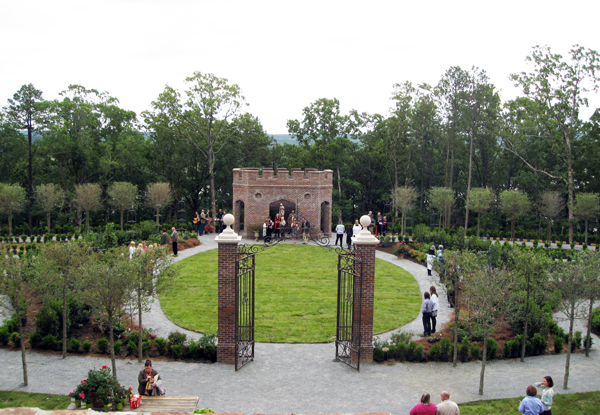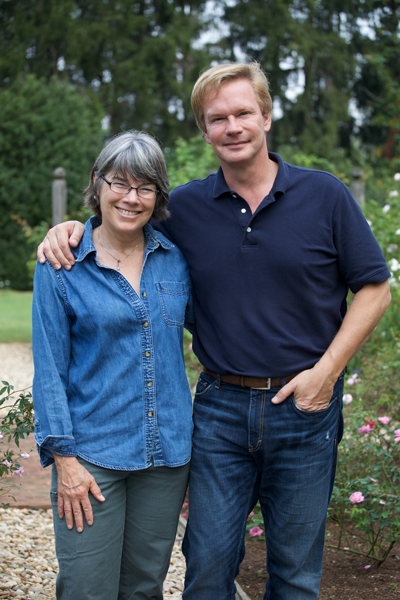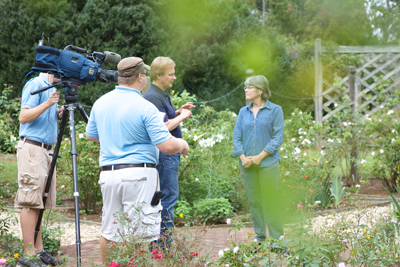
Historic Roses, P. Allen Smith, and a trip to Moss Mountain

The historic rose collections at the Thomas Jefferson Center for Historic Plants, established over twenty years ago, continue to expand and generate interest among rose lovers. This past September—prior to the 2011 Heritage Harvest Festival at Monticello— author, gardening expert, and television host P. Allen Smith visited the Center’s Tufton Farm nursery specifically to tour and film the Léonie Bell Rose Garden, a collection of historic Noisette Roses. His life-long infatuation with heirloom roses had been piqued by South Carolina rosarian Ruth Knopf who introduced him to Noisettes, a class of roses that originated in Charleston, South Carolina prior to 1812. While this class has a decidedly French name, it first occurred on the plantation of John Champneys; the progeny of a cross between the fragrant English Musk (Rosa moschata) and the ever-blooming ‘Old Blush’ China Stud Rose (Rosa chinensis cv.) The resulting first generation offspring, which he named ‘Champneys Pink Cluster’, is considered to be the first hybrid rose raised in North America.

Smith’s collaboration with CHP began in 2010 when he was developing concepts and designs for a new rose garden at his Moss Mountain home outside Little Rock, Arkansas, where his popular PBS series P. Allen Smith’s Garden Home and Garden to Table are filmed. His idea was to create a garden displaying the 200-year history of rose breeding, from the earliest, once-blooming European varieties to the latest Knock Outs. Heirloom Noisettes were high on his list of desired roses. Thus, Smith contacted CHP directly in hopes of obtaining plants propagated from the extensive collections at Tufton Farm. CHP was able to provide Smith with a great number of uncommon varieties, including some rare “found roses” identified with study names in the Bell Garden. In May 2011, I visited Smith’s massive, newly constructed rose garden at Moss Mountain and was honored to attend a gala event celebrating the garden’s first plantings.
As Smith’s Moss Mountain garden matures and flourishes, so does the collection at CHP. Remarkably, today the Bell Garden contains nearly 100 unique specimens, from the “Aunt Louisa Rose,”— found in the garden of President Garfield’s aunt—to the “Faded Pink Monthly” Noisette, preserved by an enslaved African-American woman, who, once freed after the Civil War, took a slip of root from the plantation garden where she once labored. These one-of-a-kind varieties are on display at Tufton Farm, where they are also propagated and made available to fellow, like-minded gardeners who help to preserve their fascinating legacies.
Peggy Cornett, Curator of Plants at Monticello


